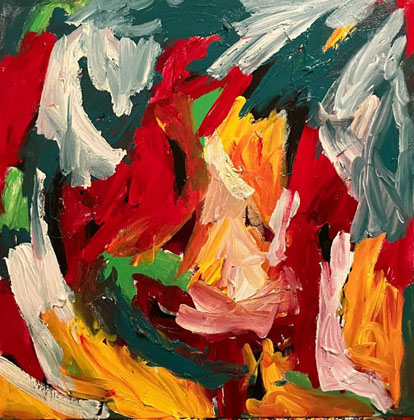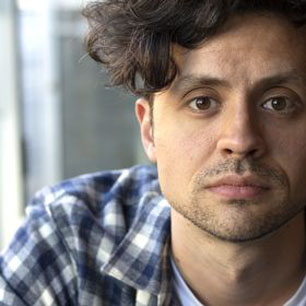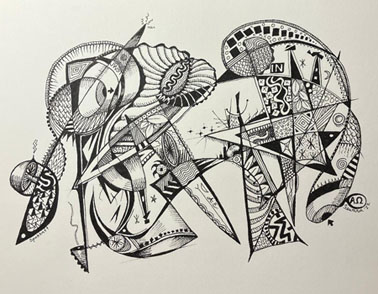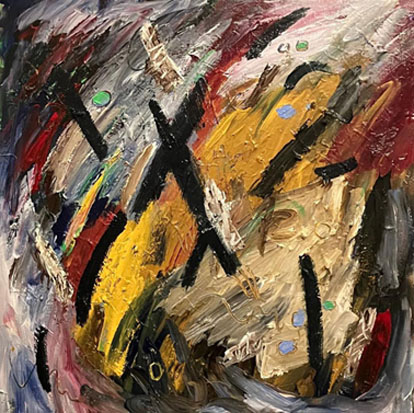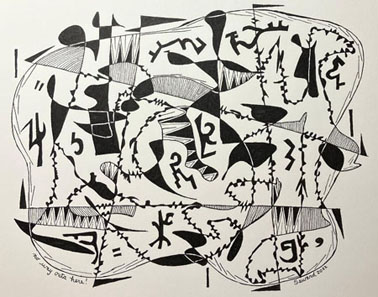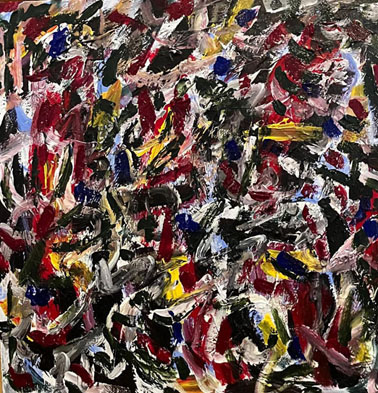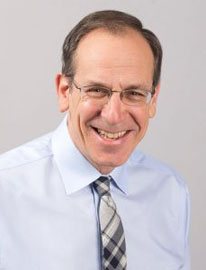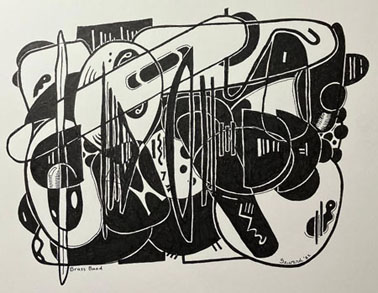Has J.J. McCullough said something sensible at last : “In Canada, interest in the monarchy remains mostly an elite thing”?
Sep 28th, 2022 | By Randall White | Category: In BriefONTARIO TONITE. RANDALL WHITE, FERNWOOD PARK, TORONTO, WEDNESDAY 28 SEPTEMBER 2022. Andrew Cohen is “a journalist, professor of journalism at Carleton University and the author of Two Days in June: John F. Kennedy and the 48 Hours That Made History” (and The Unfinished Canadian: The People We Are).
Back in the middle of June last year Mr. Cohen published an article in the Ottawa Citizen with the headline “The Washington Post’s troubled — and troubling — Canadian columnist.”
The columnist in question was “one J.J. McCullough, a cartoonist and YouTuber, in Vancouver,” who is “clever, confident and conservative,” and a purveyor of “fine” writing,“where ‘fine’ does not necessarily mean good.”
Andrew Cohen’s critique of Mr. McCullough’s weekly (and largely Canadian “global”) column in The Washington Post did not mince words : “From his 36 years of life, he foists his black pearls of wisdom on his innocent readers … His view of Canada is mirthless, even mournful. It is without nuance or variety … his night sky is unbroken by a star of hope … It reflects his disappointment in the weak, feckless confection known as Canada.”
Mr. Cohen went on : “This view of … a failed state presumably played well in the conservative pages of The National Review, for which he wrote. In the Post, offered irregularly, it might be eclectic … Weekly, though, it is boring, a jejune lament. Justin Trudeau is a mediocrity … He’s done. The Conservatives are ineffective without Stephen Harper. Everything is a failure: bilingualism, the office of the governor general, banning plastics, regulating broadcasting …”
Andrew Cohen then began his conclusion with : “The mystery is why the Post runs McCullough, as if he reflects the mood of Canada. Perhaps that’s why it also publishes David Moscrop, a thoughtful progressive (who recently used his column to tell Americans Doug Ford should resign).”
Pierre Poilievre defended JJ last year … and I finally agree with him myself now!
The day after Andrew Cohen’s J.J. McCullough critique appeared in the Ottawa Citizen there was response on Twitter. McCullough himself began with a question about the article’s title: “In what way am I ‘troubled’? Because I have a different opinion than Mr. Cohen here?”
This was followed by a supporting tweet from Pierre Poilievre (somewhat before he became leader of the Conservative Party of Canada) : “Andrew Cohen’s attack on J.J. McCullough is a cry for help from the sleepy old establishment Liberal media now irrelevant because online platforms allow people to read writers they actually enjoy, like J.J. McCullough.”
Until recently I altogether agreed with Andrew Cohen in this particular Canadian domestic conflict. Yes Canada is a (wonderfully, in part) crazy place in many ways with much growing up still left to do. But I am equally convinced that Canada — and particularly its government and even its politics — does have virtues. They are worth bearing in mind and keeping alive.
On September 21, 2022, however, J.J. McCullough’s weekly Washington Post column was headlined “In Canada, interest in the monarchy remains mostly an elite thing.” And in the wake of what many Canadians did see as the sad death of Queen Elizabeth II this article said a number of things I altogether agree with (and with what passes in Canada for some passion).
Disproportionate royalism of thought-leader class has stifled a larger debate
I was not entirely surprised by this. Like a few others I remember Mr. McCullough from his time long ago now trying to change what he notes in his September 21, 2022 column as “the fact that Canada lacks a republican [ie anti-monarchist] movement of any power.”
He apparently at least half gave up on all this because “I underestimated not only the full scope of the Canadian public indifference and ignorance about our monarchical ties, but also the magnitude of the elite’s obsession with it.” He nonetheless retains something of his earlier Canadian republican or anti-monarchist convictions (like many others, myself included!).
In any case McCullough now aptly complains that : “Public opinion polls have shown for years a majority of Canadians support cutting ties to Buckingham Palace.” But this is “rarely conceded” by (most) Canadian political leaders and academic, business, and media elites.
So at the recent “Ottawa church ceremony for the queen,” McCullough notes “former [Conservative] prime minister Brian Mulroney asserted that ‘in my judgment,’ the ‘overwhelming majority of Canadians’ support the royalist status quo.”
And current Liberal PM Justin Trudeau, McCullough also notes, is “probably Canada’s most sincerely monarchist prime minister since John Diefenbaker.” (A bit of an exaggeration perhaps, but essentially and for some among us quite disappointingly true.)
In the wake of the Queen’s recent sad passing, as McCullough nicely enough makes the point : “Such disproportionate royalism on the part of the thought-leader class has helped stifle a larger debate about the future of monarchy that Canada should really be having by now.”
In the end JJ, Andrew Cohen, and others do agree on future of monarchy in Canada!
Ironically or otherwise, J.J. McCullough has of course not been the only Canadian pundit calling for a new debate on the monarchy in Canada, in the wake of Elizabeth II’s recent sad passing — even if he is to no small extent on the money when he urges that attachment to the (British) monarchy in Canada “remains mostly an elite thing.”
Opinion polls do suggest that from a quarter to a third of we Canadian masses (as opposed to the classes, as the old anglophone “thought leaders” used to say) still do support the old offshore monarchy. And similarly, on the other side of the coin, various renegade members of the elites (or the classes) are already calling for an end to the monarchy in the new age of King Charles III.
Five days before Mr. McCullough’s “In Canada, interest in the monarchy remains mostly an elite thing” appeared in The Washington Post, a piece by his old critic (and member of both Canadian academic and media elites) Andrew Cohen had appeared in The Globe and Mail, based in Canada’s current most populous metropolis in Toronto.
This Cohen article was called “The Queen is dead. Time for Canada, finally, to talk about becoming a republic. We owe it to ourselves.”
I have no idea whether Andrew Cohen finds J.J. McCullough’s parallel remarks on the monarchy some five days later as impressive as I do. He might view some of McCullough’s September 21, 2022 column as still betraying the old flaws beneath a welcome surface of agreement.
A real-world Canadian republic in the not too distant future is going to take a lot of constructive thinking. Right-wing nattering nabobs of negativism are no better than those on the left, etc.
Still, speaking strictly for myself, as a passionate supporter of Mr. Cohen’s June 16, 2021 critique of Mr. McCullough’s Washington Post columns, it does seem striking in 2022 that the future of the monarchy in Canada is an issue on which I broadly agree with the clever, confident and conservative J.J. McCullough.
Reaching across the ideological chasm?
This agreement across the ideological chasm does (in my mind at any rate) raise the prospect that the future of the monarchy in today’s “free and democratic society” (Constitution Act, 1982) could finally be some unifying democratic issue for the Canadian near to mid term future.
It might eventually bring together enough Canadians of all persuasions to revisit the prospect of actually amending the constitution we apparently brought home with our own amending procedures 40 years ago.
And, along with abolishing the monarchy and becoming a (parliamentary democratic) republic, this could somehow pick up the work on the Québécois nation, Indigenous rights, Senate reform, and more that was no doubt wisely enough set aside for the moment 30 years ago.
It could also be just a wild political fantasy that J. J. McCullough’s hidebound elites just won’t allow! (And the rest of us won’t care enough about to protest effectively.) Only time will tell. And whatever happens Canada and the Canadian people will continue to struggle on, in an increasingly less harsh climate (and with increasingly less support for the monarchy in opinion polls).
